“The squid game” (Squid Game), a bloody drama of South Korea, has become one of the most popular shows on Netflix.
In early October it was the most watched series in 90 countries and its success is giving the world the idea that the Asian nation has a complex society.
- “The Squid Game” and the Real Crisis in South Korea: Corruption, Excessive Debt, and the Need to Prove Your Success
- South Korean court agrees with transgender soldier who committed suicide
- North Korea restores its direct communication lines with the South
But aside from being a highly suspenseful story, with struggling contestants participating in games of life and death in exchange for money, the series has earned plaudits for its depiction of the real difficulties affecting the people of South Korea.
The series follows in the footsteps of Parasite, the famous film that shows the contrast in the lives of two families in Seoul.
In 2020, it was the first production in a language other than English to win the Oscar for best picture.
Parasite He also won five other Oscars, including Best Director.
Many foreign viewers may not have been aware of South Korea’s social problems, but with “The Squid Game” this would be changing.
These are some of the key themes that stand out in the series.
Warning: this article reveals some details of the plot of the series.
1. Misogyny
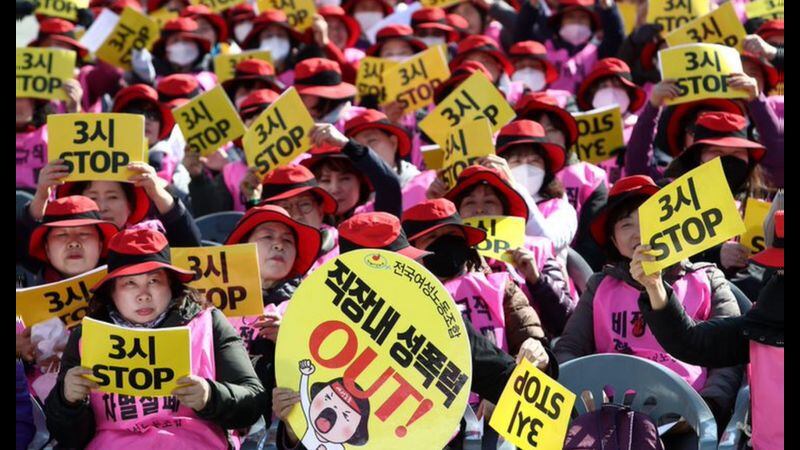
South Korea ranks a modest 102nd on the list of countries with greater gender equality, according to the 2021 edition of the World Economic Forum’s Global Gender Gap.
“The Squid Game” reflects this cultural characteristic through discussions about the suitability of women in tasks assigned to contestants.
Cho Sang-woo, the investment banker, more than once tries to prevent women from participating in group tasks.
But the show itself received criticism for his interpretation of the roles of women.
Specifically, a controversy arose around the character Mi-nyeo, who engages in sexual relations with the gangster Deok-su to join his team.
The writer and director of “The Squid Game”, Hwang Dong-hyuk, rejected the accusations of misogyny made on social media.
In an interview with the Korean newspaper Hankook Ilbo, he refuted that suggestion, saying that he imagined the characters reacting “when they are in the worst situation.”
2. The difficult reality of the deserters from the north
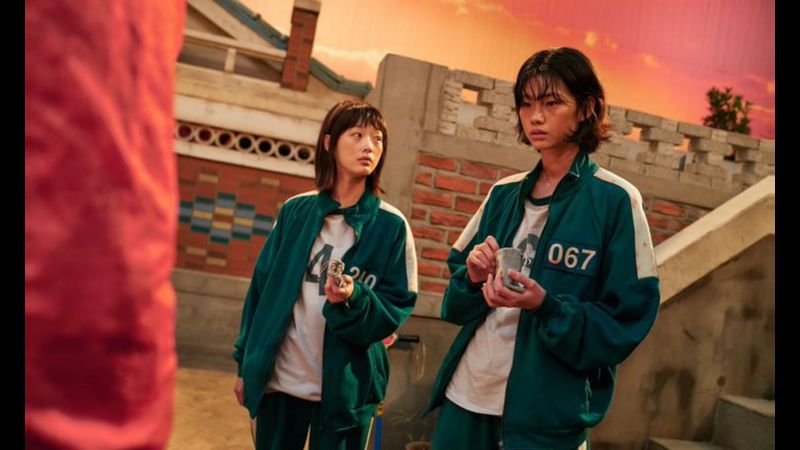
“The Squid Game” also analyzes the problem of North Korean defectors.
In the series, contestant Sae-byok (played by Jung Ho-yeon) joins the group in hopes of earning money to reunite her family, who became separated while fleeing the repressive regime in the neighboring country.
Before the pandemic, more than 1,000 North Koreans sought refuge in South Korea each year.
While Seoul has a number of adaptation plans and benefits, defectors can suffer abuse, discrimination and suspicion by the South Koreans.
“The Squid Game” shows some aspects of this problem, including a detail on language. Like many other defectors in real life, Sae-byok hides his original North Korean accent and speaks in the standard Seoul dialect.
He only returns to his original accent in one scene when he talks to his younger brother who is in an orphanage.
3. Poverty
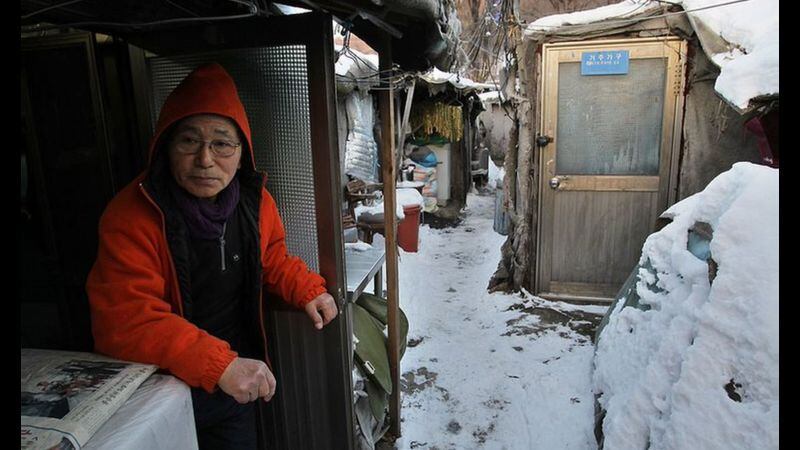
Anyone would raise an eyebrow if the topic under discussion is poverty in South Korea.
The Asian country appears in 23rd place in the ranking of the United Nations Human Development Index, ahead of France, Italy and Spain, for example.
But the main character of the series, Gi-hun, was fired by the fictional company Dragon Motors, has two businesses that did not work, lives with his ailing mother and cannot afford to buy his daughter a decent birthday present.
He personifies the failed worker who cannot get out of poverty.
On the Gini Index, which measures the distribution of national wealth, South Korea performs better than some Nordic countries and even the United States.
So why is poverty a theme on the show?
Well it could be because inequality is on the rise in the Asian country. South Korea’s top 20% have a net worth 166 times greater than that of the poorest 20%.
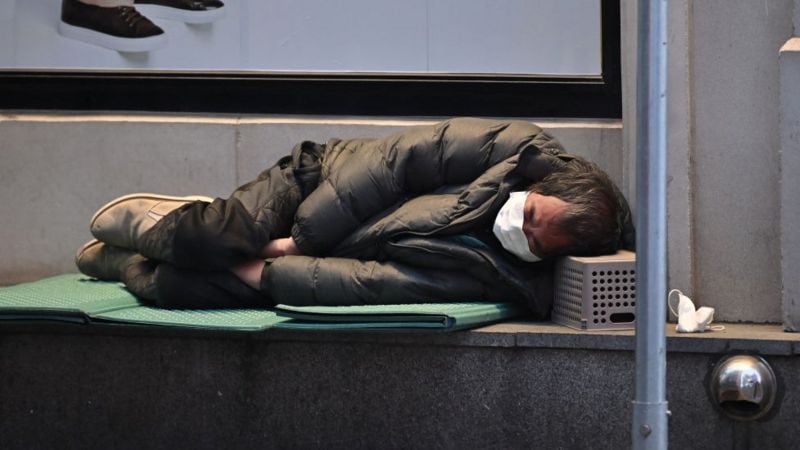
Figures from the Organization for Economic Cooperation and Development (OECD) show that almost 17% of the more than 51 million inhabitants of South Korea lived in poverty before the COVID-19 pandemic.
Homes can be small in the form of cubicles called Goshitels and Goshiwon, some barely 2 meters wide. Several generations of a family can live together in these apartments.
But even those with the greatest economic resources have problems: Household debt in South Korea is now worth more than the country’s Gross Domestic Product (GDP), the highest level in all of Asia.
4. Exploitation of migrants
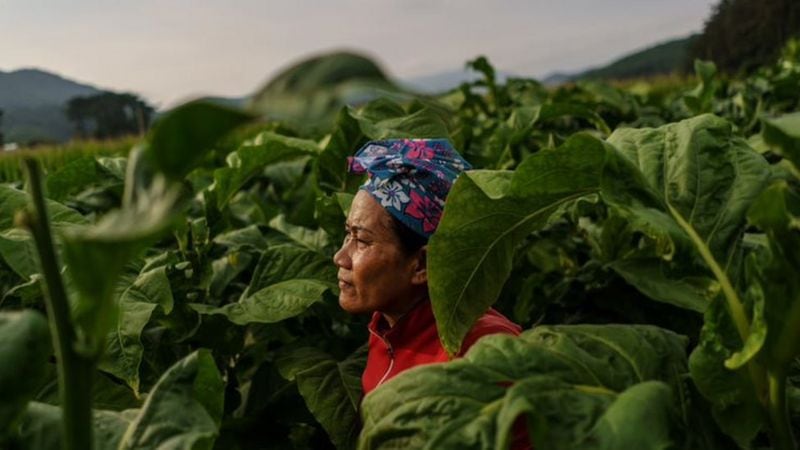
One of the most endearing characters in “The Squid Game” is Ali, a Pakistani migrant who works in a factory and who joins the contestants after his South Korean boss withheld his salary for months, forcing him to leave. his wife and baby.
Pakistanis are not the largest immigrant group in South Korea, but Ali’s backstory highlights a routine of hard work and exploitation that some foreign workers may experience at home.
While South Korea has labor protection laws passed in the past two decades, conditions can still be dire for migrant workers, according to human rights groups.
5. Corporate and political cronyism
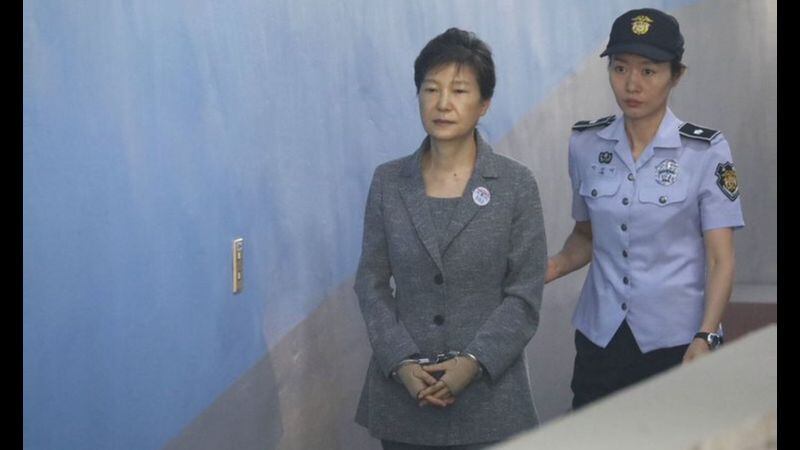
One of the main characters in the series is Cho Sang-woo, an investment banker who joins the game after being accused of embezzling funds from the company he worked for.
In recent years, South Korea has been shaken by scandals involving its business and political elite, including a 2016 corruption investigation that toppled its first female president, Park Geun-hye.
6. A complicated relationship with China
“The Squid Game” makes a single reference to China, which is North Korea’s main ally: Sae-byok’s mother is arrested while trying to reach South Korea via mainland China.
Off screen, the series became another example of the tensions between Seoul and Beijing. Chinese media reported that the green uniforms worn by the game’s contestants are similar to the costumes in the 2019 Chinese movie “Teacher, Like.”
That led to heated discussions on social media, but did little to affect the success of “The Squid Game” in the country.
Even though Netflix is blocked in China and there is no official distribution, the show is available through illegal streaming services.
It received criticism from nearly 300,000 people on Douban, China’s largest movie and book review platform, with a respectable 7.6 out of 10 rating.
Ironically, e-commerce sites also offer “Squid Game” related products, including green suits. In Shanghai, there are even stores that selldalgona, a Korean sweet that appears in an episode.
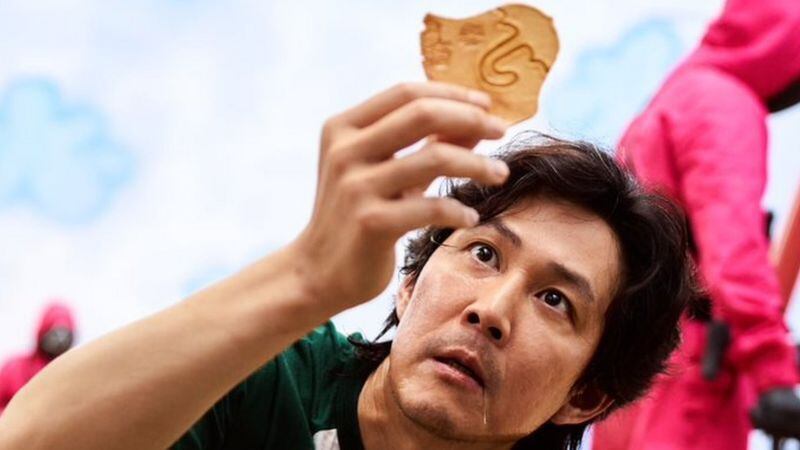
Contestants have to carve relief shapes into pieces of brittle candy, made with baking soda and sugar.
There is also a “candy challenge dalgona”Which is spread through videos on TikTok, where fans recreate the deadly pleasure of the show.
“The Squid Game” may have created a negative image about such an innocuous food, but the popularity of the series highlights what it appears to be a growing worldwide fascination for Korean culture.
- Pandora Papers: investigation reveals 35 world leaders hid their fortune to avoid paying taxes
- Italy authorizes full capacity in cinemas and theaters, and will open nightclubs from October 11 after controlling the pandemic
- Melbourne becomes the city in the world with the most days under strict confinement due to coronavirus
- Why New Zealand Decided To Abandon Its “Successful” Coronavirus Total Elimination Strategy (And What’s New)
- A Romanian millionaire among the 8 killed by a private plane crash against a building in Milan | PHOTOS
- President of Ecuador Guillermo Lasso created an ‘offshore’ network to hide his fortune, according to the Pandora Papers
- Simple guide to understanding Pandora Papers, one of the biggest leaks in history
- The Romanovs and the lineage of the last tsars: what was the fate of the descendants of the royal family of Russia?
.

:quality(75)/cloudfront-us-east-1.images.arcpublishing.com/elcomercio/QMI54AEZYRA7JBY2KK2UCCL3SI.png)



:quality(75)/cloudfront-us-east-1.images.arcpublishing.com/elcomercio/OGCTMCKQJBAOLI4HRVYVJFEEI4.jpg)

:quality(75)/cloudfront-us-east-1.images.arcpublishing.com/elcomercio/BJBQ4P3D4BG6VD5ZCD7JLLJP7I.jpg)
